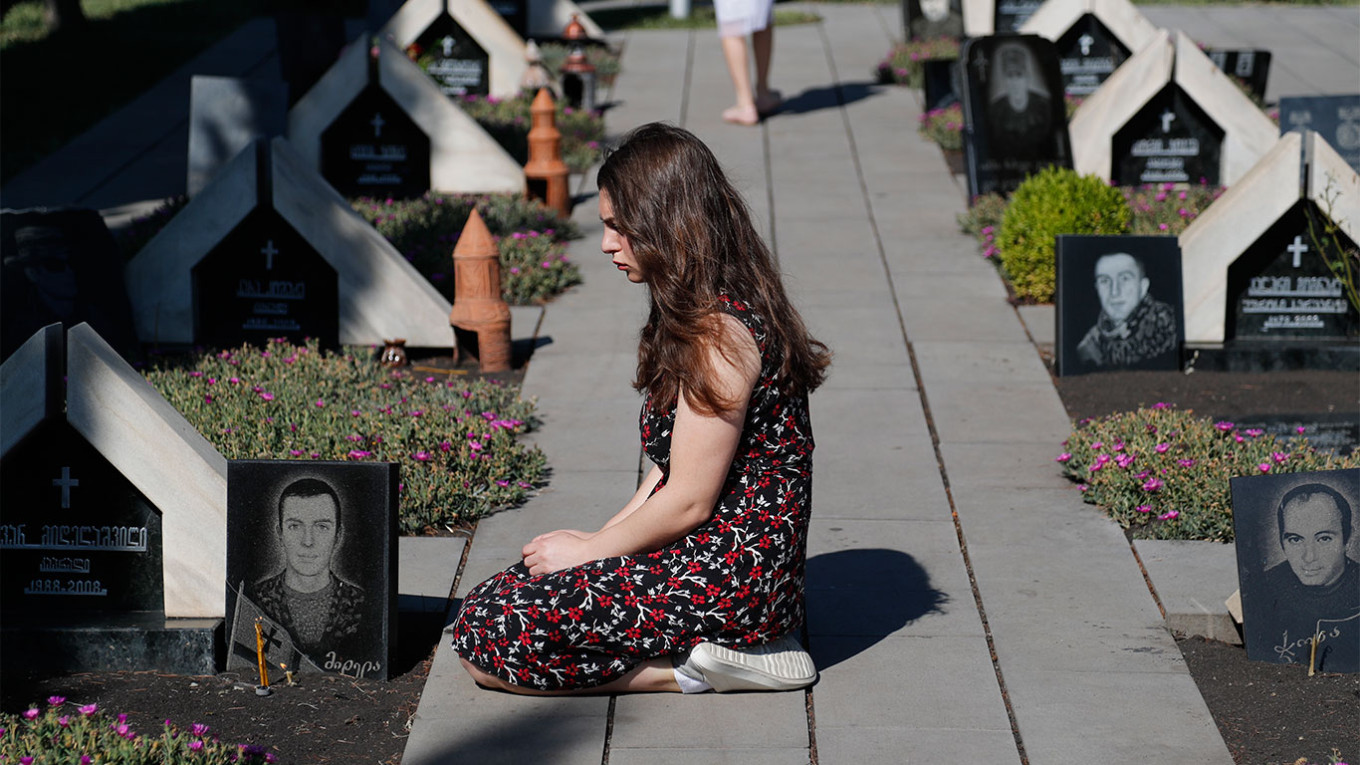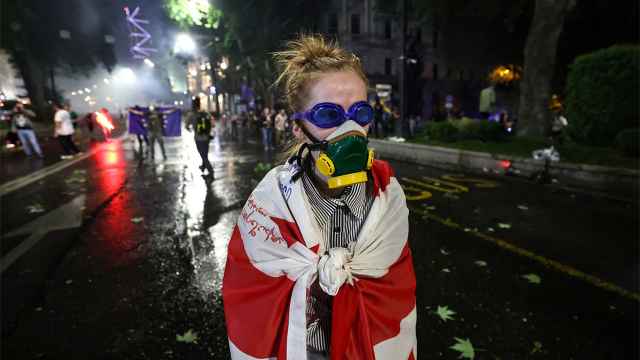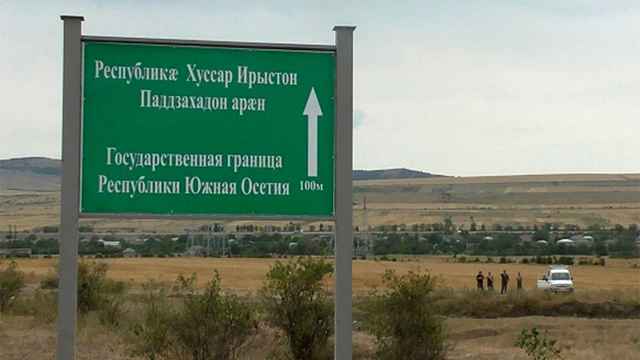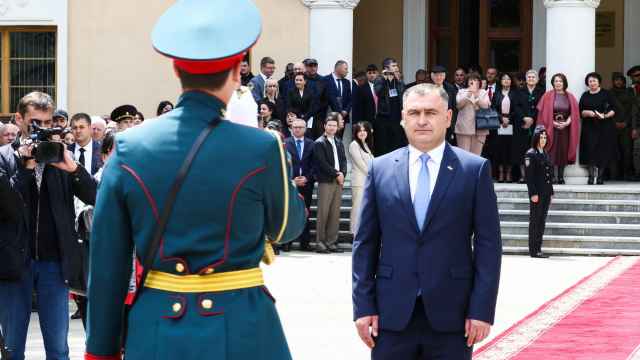MTSKHETA-MTIANETI, Georgia — In the mountain village of Zemo Mleta, locals’ memories of Georgia’s 2008 war with Russia run deep.
“Some of my friends fled their homes in South Ossetia after the horror that happened in 2008,” said Tamar, a woman selling souvenirs at a roadside market.
The five-day conflict ended with the region of South Ossetia next door breaking away from Georgia and hosting a Russian military contingent that remains there today.
For Georgians living near the de-facto borders of South Ossetia and Georgia’s other breakaway region of Abkhazia, Russia’s war in Ukraine conjures up memories of its invasion of their South Caucasus country — and sparked fears of renewed aggression from its much larger and more powerful neighbor.
“One of [my friends] thinks it’ll happen again, she’s got two young children with her here,” Tamar said. “We all hope that there won’t be any more fighting, at least not here, but I’m not so sure.”
South Ossetia and Abkhazia, which constitute some 20% of Georgia’s territory, are widely considered to be part of Georgia. Just a handful of countries, like Russia, Syria, and Venezuela, recognize them as independent states.
Moscow's efforts to influence the situation in Georgia have fed into its tensions with the Georgian government and its partners in the West.
In an opinion piece marking the 15th anniversary of the conflict last month, Dmitry Medvedev, the former Russian president and current Kremlin Security Council deputy chair, claimed that “in Abkhazia and South Ossetia, the idea of joining Russia is still popular. And it may well be implemented, if there are good reasons for it.”
He went on to accuse NATO of escalating tensions by discussing Georgia’s potential accession to the alliance, further warning that Russia “will not hesitate” to act if its unspecified “concerns” become reality.
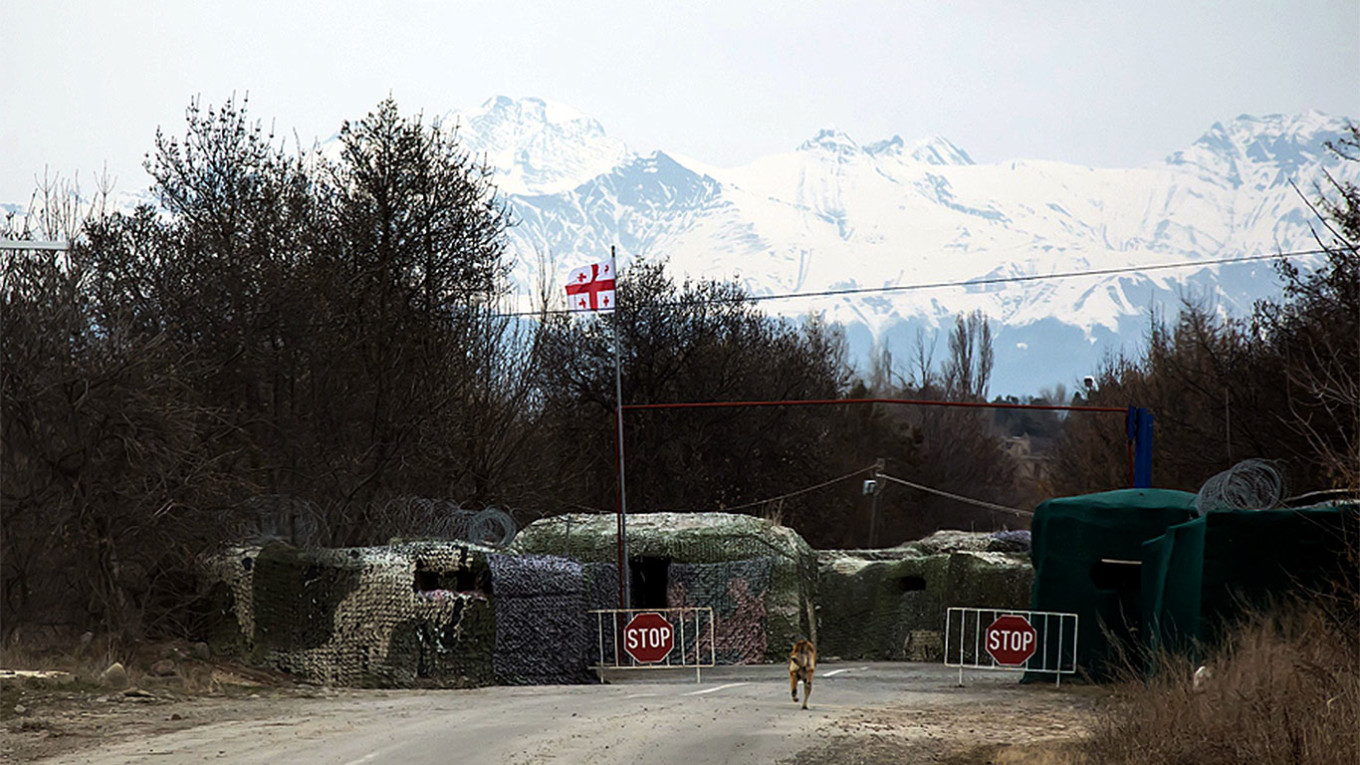
Georgia has provided refuge to thousands of anti-war Russians and opposition activists who fled a deepening political crackdown in the wake of Russia's February 2022 invasion of Ukraine.
At the same time, Georgia’s government has faced accusations of drifting closer to Moscow even as it seeks integration with the European Union and NATO.
“The Georgian people are certainly afraid,” said Bidzina Lebanidze, a senior analyst at the Georgian Institute of Politics and postdoctoral research fellow at the Institute of Slavic Languages and Caucasus Studies at Friedrich Schiller University Jena.
Medvedev’s statements, Lebanidze said, were “particularly unpleasant for the Georgian government, which portrays itself as a peace-loving government that has managed to formalize relationships with Russia, and yet it is now being toyed with by Russia in this way.”
Georgia has spent little of its annual budget on defense since the 2008 war, instead prioritizing sectors like health and education.
“Since the power change in 2012, foreign and military policy has turned towards accommodating Russia, not focusing on military reforms or acquisition of military equipment,” Lebanidze said. “We did receive Javelins from the U.S., but there has been nothing particularly spectacular and the military budget has been increasing very slowly. I think this stems in part from Georgian Dream not wanting to irritate Russia too much.”
Others have warned that Russia could use the frozen conflicts of Abkhazia and South Ossetia as potential sites of intervention, either by formally annexing the breakaway regions — mirroring Moscow’s widely condemned annexation of four regions in eastern and southern Ukraine last year — or by seeking to take more Georgian territory.
“The Georgian government promotes peace but lacks a direction,” David Darchiashvili, professor of international relations and security studies at Ilia State University and a former member of the Georgian parliament, told The Moscow Times. “It does not know how to truly deal with Abkhazia and South Ossetia since they were occupied by Russian troops in 2008.”
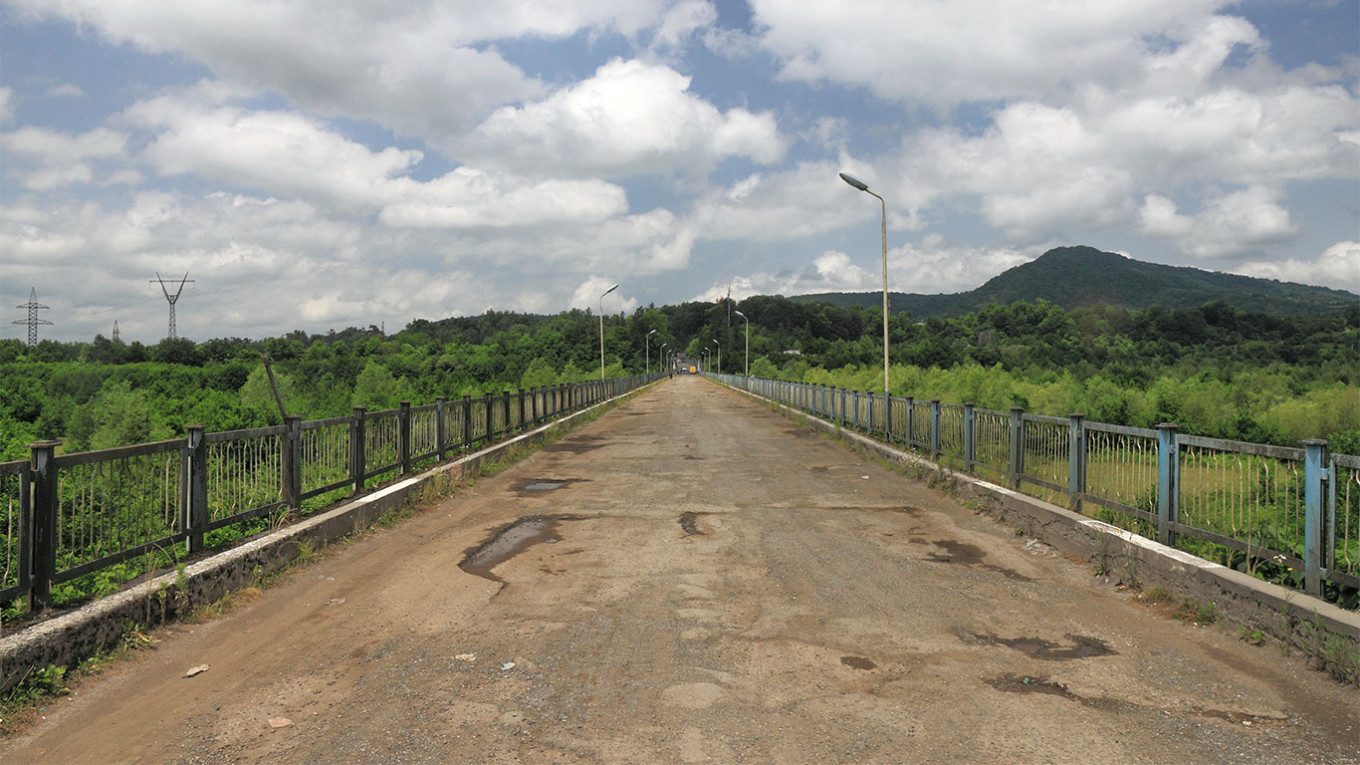
“Russia remains a threat to Georgia and remains a major player within Georgia itself,” he continued. As a result, “Georgia should hope for as profound a defeat of Russia in the conflict with Ukraine as possible to give Georgia an advantage in negotiations over Abkhazia and South Ossetia.”
“Whilst Russia remains an imperial power in the South Caucasus, there will be no solution to these frozen conflicts,” Darchiashvili said. “Whilst Russia’s withdrawal from these regions does not mean there will be immediate peace, it at least gives us a chance.”
Fifteen kilometers north of Zemo Mleta, crowds of tourists and locals admire the Russia-Georgia Friendship Monument. The monument, a large tile mural set on a dramatic cliff’s edge, was built in 1983 to commemorate the ongoing friendship between Soviet Russia and Soviet Georgia.
Today, the irony of the monument’s name is not lost on locals and passing tourists.
“Russia will always be a threat,” a local worker said. “They’ve invaded before, they could do it again. I don’t think that’s friendship, do you?”
Another person expressed uncertainty toward the current state of affairs and hoped that there might be opportunities for improvement in the future: “I don’t know what I think. I’m optimistic, and I would think things will all settle down eventually.”
One source close to the Georgian government, who spoke on condition of anonymity due to security concerns, said that relations with Russia could not be fixed as long as Putin was in power.
“Relations between Russia and Georgia have been especially tense since the 2008 war,” the source said. “The Georgian people hope to one day live without Putin’s Russia — it’s too dangerous right there on our doorstep. And Georgia is vulnerable — we’re more or less alone on the geopolitical stage.”
“We have to use the war in Ukraine to deepen our cooperation with NATO,” the source continued, adding that his biggest fear was that “with so many Russians now living in Georgia, this may give Putin a pretext to invade.”
“At the moment, perhaps the best we can do is improve people-to-people contact [between the regions and the rest of Georgia], especially if the governments aren’t talking as they should,” the source said.
In Stepantsminda, a town near the Russian border famed for its hilltop monastery, one resident is already putting this into practice.
“I’m always happy. But people here are always happy in general,” said Toko, a waiter at a traditional Georgian restaurant known among locals for his upbeat nature.
“People pass through, they’re polite, they help each other. And they come from all over because they’re often truck drivers carrying goods over the border. It doesn’t matter: Russian, Georgian, Ossetian, Armenian — who cares? If you’re polite, that’s what matters.”
Toko doesn’t fear the shadow looming over the Russian border. Instead, he sees the solution in the people he serves in his restaurant.
“There is no conflict here,” he says, “And I don’t think there will be, or needs to be. All the disputes are caused by politicians. I serve people food and make them happy. You can’t fight someone after they’ve given you the best khachapuri in Georgia, can you?”
A Message from The Moscow Times:
Dear readers,
We are facing unprecedented challenges. Russia's Prosecutor General's Office has designated The Moscow Times as an "undesirable" organization, criminalizing our work and putting our staff at risk of prosecution. This follows our earlier unjust labeling as a "foreign agent."
These actions are direct attempts to silence independent journalism in Russia. The authorities claim our work "discredits the decisions of the Russian leadership." We see things differently: we strive to provide accurate, unbiased reporting on Russia.
We, the journalists of The Moscow Times, refuse to be silenced. But to continue our work, we need your help.
Your support, no matter how small, makes a world of difference. If you can, please support us monthly starting from just $2. It's quick to set up, and every contribution makes a significant impact.
By supporting The Moscow Times, you're defending open, independent journalism in the face of repression. Thank you for standing with us.
Remind me later.



